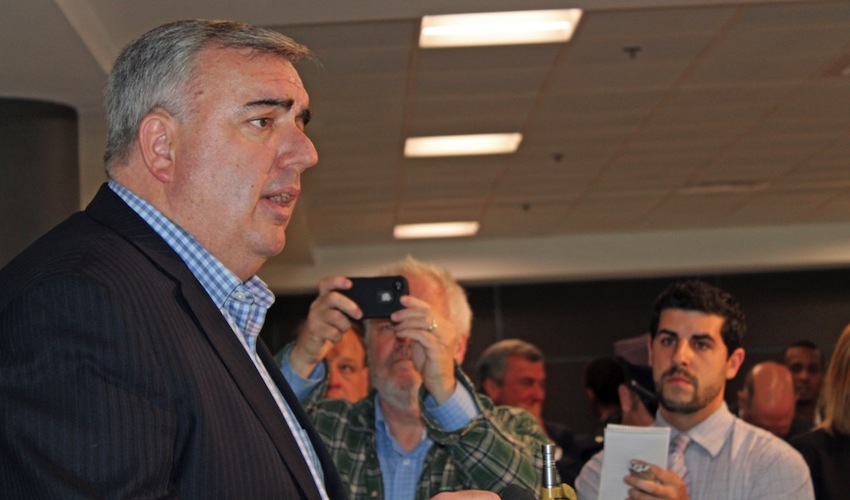Why Didn’t Federal Officials Tell Boston Police About Tamerlan Tsarnaev?
During a congressional hearing in Washington, D.C., to discuss how the Boston Marathon bombing situation was handled, and what could have been done to prevent it, officials said they were disappointed that more people, including federal agencies, didn’t speak up about information they had about the suspects.
Headed by House Homeland Security Committee Chairman Rep. Michael McCaul, R-Texas, the meeting, which included an appearance by Boston Police Commissioner Ed Davis, was the first of many that will examine the government’s response to the April 15 attack on Boylston Street, and whether better communication between agencies could have thwarted the bombings and the deaths of innocent victims.
Davis told the hearing committee that if they had more information about the bombing suspects, specifically Tamerlan Tsarnaev, who was on the FBI’s radar in 2011, and on the Russian government’s intelligence list, they would have looked deeper into his background. “If we knew everything we know now, if we knew all of these things, we would have taken a hard look at these individuals,” Davis said before the committee on Thursday.
Davis also expressed concern over the fact that once information was released about the suspects, following the murder of MIT Police Officer Sean Collier, that no one from the University of Massachusetts at Dartmouth, where younger bombing suspect Dzhokhar Tsarnaev attended school, came forward to identify the individual.
“Though it would not have been easy, it was possible to prevent the terrorist attacks in Boston,” said former Senator Joe Lieberman. “Certainly friends should have told police what they saw and heard instead of obstructing justice. Also the mosque that threw Tamerlan out for his extreme views could have said something to the police. Tamerlan’s wife could have saved lives if she said something, or asked someone for help.”
Lieberman said the cost of silence was “enormous.”
According to Davis, the FBI, and other federal agencies tasked with keeping an eye on people suspected of having ties to terrorist activities, never shared information with members of Boston’s own counterterrorism department. “Everything we [did] has to be reviewed … but until the facts are on the table, it’s hard to say what we could have done differently,” said Davis.
Joint Terrorism Task Forces were created in the wake of September 11 at the behest of national security officials, “designed to combine the resources of federal, state, and local law enforcement” in sharing information. State police have seven troopers assigned to their own JTTF division, but the state’s undersecretary for homeland security said Thursday that no relevant data about the suspects was ever shared.
When asked by McCaul if he would have liked to have known more about Tamerlan’s activities prior to the bombings, Davis replied, “in hindsight … certainly.” Davis said only after a police chase through Watertown, and the identification of the suspects, did information about Tamerlan’s travels to his home country, and his activities tied to terrorist videos online, come to light. “The whole point of fusion centers is to share information…the [fact] that [federal officials] have information, and that it was not shared with locals, defies why we created the Department of Homeland security in the first place. And it’s very troubling for me,” said McCaul.
Before leaving on a flight to the capital, Davis made it abundantly clear that the most important thing about the hearing would be to recognize the victims. “I will tell the committee to recognize and never forget the names of [the four people] that must never, ever be forgotten. I will tell them, in the days ahead as we work to be better at what we do, we will do so in honor and memory of Officer Sean Collier, Lu Lingzi, Krystle Campbell and an innocent 8 year-old boy by the name of Martin Richard,” Davis said.
Despite the fact that information may have slipped through the cracks, Davis kept a positive attitude during the hearing, and said the city is back on its feet. “Boston is a stronger city because of this, and I hope the people who committed these atrocious acts know there is a futility in their efforts,” he said.



